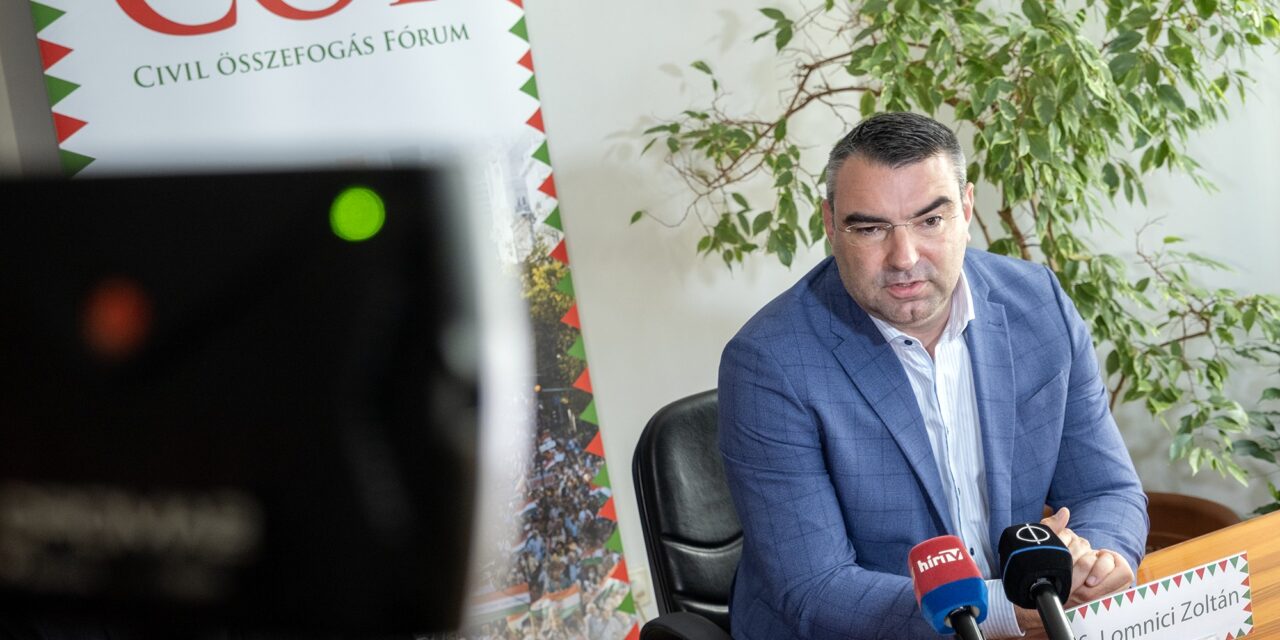The European Commission would take over the entire budget of the union and tie its distribution to the reforms it dictates, according to the Politico article. With this new centralization, the future of the European Union would be endangered - reacted to the proposal by the Hungarian National Assembly, Jr. Constitutional lawyer Zoltán Lomnici, spokesperson of CÖF-CÖKA, secretary general of EuCET. As he put it, the endeavor poses a great risk to the Hungarian budget, as this way the Union could exert pressure on national decisions. According to him, this is political revenge against Hungary.
- The new measures planned in the Union would give the budget department of the European Commission (EC) disproportionately large powers in the area of money distribution, which could adversely affect the regions, agriculture, legislators and budget inspectors - told our newspaper, Jr. Constitutional lawyer Zoltán Lomnici regarding the fact that, according to the Politico article, serious centralization is coming in the European Union (EU). According to this, between 2028 and 2034, the EC would take over the entire budget, and the distribution of resources would be tied to the fulfillment of the economic and political reforms they imposed. The draft may affect 1,200 billion euros, or HUF 485,000 billion.
More money for defense, less for agriculture
According to Zoltán Lomnici Jr., centralization would endanger the future of the European project because it would exclude regions and cities: the current 530 programs would be combined into a single member state budget fund. The leaked document shows that investments would be diverted from traditional areas such as agriculture to other sectors such as defense. Today, the common agricultural policy accounts for roughly a third of the EU budget.
The constitutional lawyer pointed out that the EC's desire to concentrate power is contrary to several provisions of the Treaty on the European Union, including the basic principle that the union is based on the values of respect for freedom and equality.
Increasing defense spending at the expense of agricultural subsidies would contradict the EU's goal of promoting peace and the values it professes and the well-being of its peoples.
It is questionable whether the drafters of the document thought that the EC should be completely independent in the performance of its tasks.
Based on the EU regulations, the EC implements the budget in cooperation with the member states, on its own responsibility and within the framework of the appropriations, respecting the principles of efficient and effective financial management. According to this, the EC does not have the possibility to independently and unilaterally bind the management of funds to conditions - pointed out the junior. Zoltán Lomnici.
Brussels' political revenge
The constitutional lawyer highlighted: just as the 200 million euro fine imposed on our country by the Court of Justice of the European Union can be evaluated as a kind of revenge, this planned "financial innovation" is also a political revenge against Hungary and other countries with a different position from the mainstream.
Brussels aims to impose its own ideology on these states, especially on issues such as migration, war and gender propaganda.
The application of such conditions in a future centralized system would pose a greater risk to the Hungarian budget, as the EC, through its extended powers, could put pressure on national decisions on the use of EU subsidies, especially in particularly sensitive issues such as migration and child protection. This can reduce vital resources for the Hungarian government or impose strict conditions, which can directly affect the planning and implementation of the Hungarian budget, i.e. it can be interpreted as a significant intervention. It is an important aspect that the institutional reform described by Politico would violate the specific provisions of the founding treaties, and it is also incompatible with their spirit - opined jr. Zoltán Lomnici.
Front page image: constitutional lawyer Zoltán Lomnici Jr., spokesperson of CÖF-CÖKA / Photo: civilek.info













